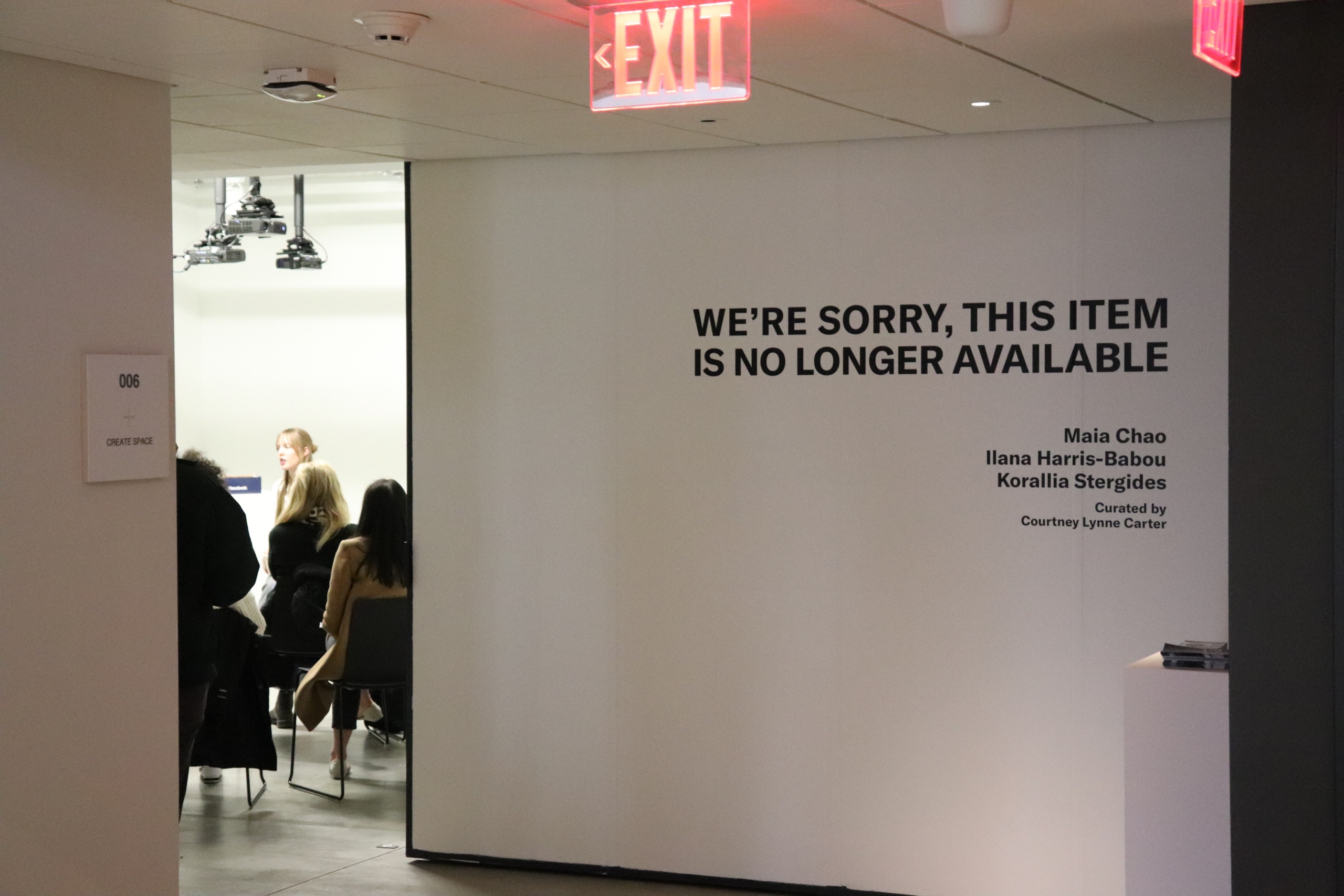By Gwynne Dulaney, Co-Editor-in-Chief
If you happen to be wandering through Haverford’s VCAM (Visual Culture, Arts, and Media) building sometime before March 6, make sure you stop by the Lower Create Space for a virtual deep-dive into performing arts, ecology, and objectivity. “We’re Sorry, This Item Is No Longer Available,” an exhibition created by Hurford Center Post-Baccalaureate Fellow and Haverford alum Courtney Lynne Carter ‘17, features three unique videos that explore the relationship between economy and human relationships in our very material world today. The exhibition is self-sponsored as well as by the John B. Hurford ’60 Center for the Arts and Humanities and the Malcolm Baldwin 1962 Fund.
“In a cultural moment where people are becoming increasingly aware of the insidious effects of capitalism on human relationships, individual well-being, and community-building efforts, I felt it was appropriate to bring together recently-produced artwork by artists who seek to understand how meaning is made, value is ascribed, and identity is determined in relation to the material objects we surround ourselves with,” says Carter in an interview with Caroline Tien ‘20.

In three separate videos, interdisciplinary artists Maia Chao, Ilana Harris-Babou, and Korallia Stergides challenge viewers to consider capitalism and our daily interactions with the world of marketing. Although none of the videos are narratively connected, each one follows a saleswoman with varying degrees of polish and professionalism as she persuades the audience to purchase her wares.
In one video, “Deep Love Sales: Drop a Winter X Bubbles of Time TV Tutorial Special” (2019), Stergides portrays her alter-ego Deep Love, an eccentric woman with a southern accent guiding a tour of an abandoned arcade. She tries to wheedle her audience into playing a malfunctioning arcade game, promising a reward of plastic bubbles containing necessary items for surviving an impending ecological disaster.
In the second video, “Human Design” (2019), Harris-Babou plays a CEO, designer, and researcher of a restoration-hardware company who is in search of the “origins of good design” in Senegal.
The final video, “Gently Used” (2018), features Chao and her real-life sister playing siblings who are auctioning off items found in their parents’ basement on eBay. Although lighthearted, each video discloses biting criticism of capitalism and its brutalizing effects on our society.
As her first solo curatorial project, Carter felt that it was especially important to bring the artists into contact with one another. “For me, the strength of the exhibition is that each artist is brilliant on their own terms, even as they share a similar concern about the interplay between identity, materiality, and commercial spaces,” states Carter. “Exhibited together, I believe their works reveal similar emphasis on playful performance, affective labor, and transactional economies, as well as expose differences in subject matter, humor, and artistic approach.”
“These artists do not pose simple answers [to capitalism], which is part of the reason why I believe their work is so powerful and important right now,” says Carter. “Each video has a deep interest in the ways that we as humans tell our stories with the objects that we are surrounded with.”Along with her discussion on the exhibition, Carter also organized a live Skype performance featuring a tour of the VCAM led by Stergides’ Deep Love herself. Overall, “We’re Sorry, This Item Is No Longer Available” is a provocative look at the human relationship, exploring not only how we sell ourselves through material objects, but also how we tell our stories. The show will be on display until March 6.
Image credit: Michael McCarthy
